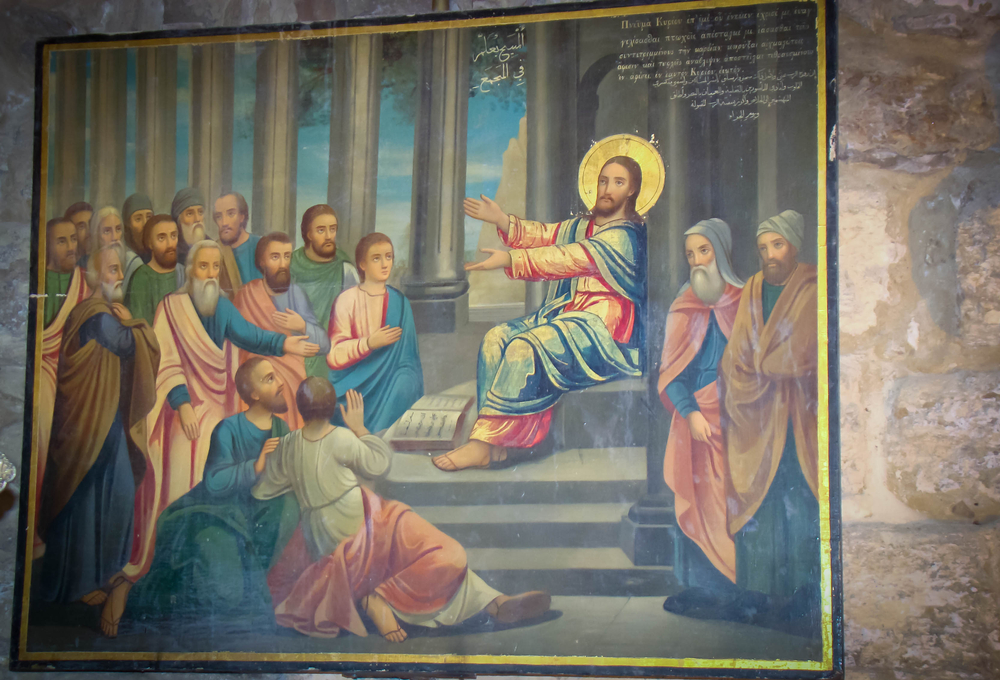It’s wrong to reduce Jesus to a moral teacher or mere philosopher. Jesus was not a wordsmith selling word salads, nor a crank peddling new ideas, nor a sophist showing off his rhetorical verve, nor an intellectual establishing his own academy à la Plato. Jesus is the Messiah, the Son of God, even “Immanuel.” Be that as it may, while Jesus is more than a teacher, he is certainly no less than one, and his teaching remains poignant, powerful, and challenging even today. This is where The Surprising Genius of Genius: What the Gospels Reveal About the Greatest Teacher by Peter J. Williams comes in. Williams’ thesis is that Jesus is just as much a genius as Aristotle, Mozart, or Einstein. Jesus’ teaching contains “impressive factual knowledge” along with an “impressive depth of insight, coherence, and simplicity.” For Williams, the Christian revolution that rocked the Roman world and birthed western civilization goes back to the “genius” of Jesus.
Williams takes as Exhibit A Jesus’ Parable of the Prodigal Son found in Luke 15:11–32. The genius of Jesus is evident, claims Williams, by virtue of three things found here. First, the sheer cleverness of the parable itself. It’s the third of three parables about lost things: lost sheep, a lost coin, and then a lost son. These parables serve to defend why Jesus dines with the “deplorables,” sinners, and tax collectors, much to the consternation and disapproval of the Pharisees and scribes. Williams points out that the story is both brief and beautiful, creates tension, and mentions family, a farm, famine, pigs, poverty, and a fattened calf. The ingratitude and indulgence of the younger son makes us angry; we’re then shocked and surprised by the mercy of his father, and even sympathetic to the anger and jealousy of the older son. Yet, as Williams notes, the story is not really about the prodigal but about the older son, because he, just like the Pharisees and scribes, refuses to join the celebration that someone lost has been found, as in Jesus’ fellowship with sinners. The lost son’s redemption is not the main point; he is but a prop to show the hard-heartedness of Jesus’ critics, who think they possess “a greater share of God’s favor”—a brilliant narrative bait and switch.
Second, the parable alludes to and echoes various Old Testament stories. Jesus was no trained scribe, but he was able to weave in allusions and echoes of the Old Testament in ways that might have impressed even the “experts.” In particular, Jesus’ parable rehearses many themes and key motifs from the Book of Genesis. To begin with, there are a number of OT characters who had two sons, most notably Isaac (Esau and Jacob). In fact, Williams points to several parallels between Esau and Jacob and the two brothers in the parable, the most striking of which is the concern about inheritance. Whereas Esau, who was cheated by Jacob out of his inheritance, reconciled with Jacob, the older brother in the parable does not reconcile with his delinquent younger brother. In other words, the scribes and Pharisees are worse than Esau by resenting Jesus for dining with tax collectors and sinners. Further interesting parallels are drawn with the stories of Cain-Abel, Abraham, Jacob-Laban, Joseph, and Judah. As Williams points out, this type of storytelling, which rehearses key scriptural wording and themes, anticipates later rabbinic mashalim and proves rhetorically powerful for a biblical literate audience that would sense the moral challenge Jesus was making to his critics.
Williams proceeds to show how the same technique of alluding to Old Testament languages, characters, and stories is found in other parables and teachings spread across Matthew, Mark and Luke. Williams detects in these stories an atmosphere that derives from first-century Palestine as well as from the genius at work.
One cannot simply attribute these stories to the Gospels writers, however. For example, while Luke 15–16 displays thematic repetition and resonance, the parables’ true author is clearly aware of proto-rabbinic interpretive techniques, semitic idioms, and the workings of daily life in Judea and Galilee, which is not typical of a Greek-speaking gentile from Asia Minor like Luke the physician. According to Williams:
Jesus’s teachings were transmitted early on in order to recognize that the stories attributed to him in the Gospels show numerous common features and that they are not readily explained as creations by the Gospel writers but are easily explained as the records of a brilliant teacher with a profile that closely matches what we know about Jesus.
Third, the Parable of the Prodigal Son is striking in how it exemplifies Jesus’ overall mission and message. For Williams, Jesus was more than a religious talent and literary master. His teaching was part of a messianic career, climaxing in his death and resurrection, a career that was part of the story of God’s plan to create and renew the world. As Williams suggests, Jesus’ genius if rooted in both his identity and his origin: he came from God and he is God. As Williams concludes:
If the storyteller Jesus Christ is God himself, who made the world, invented language, oversaw history, and then became human to tell us about God and to rescue us from our alienation [from] him, then his wisdom and genius make sense. And if he is that smart and if he also loved us enough to die to save us, the only sensible thing to do is to accept him unreservedly as our teacher, guide, and Savior.
By way of evaluation, Williams’ book is an easy read and focuses on details that many might just gloss over. The mantra of this age is “Be true to yourself,” which implies that I do not need a teacher, a mentor, a guide, that I already possess all the resources within me to be a moral and mature person. Yet the crucible of life shows that such a prosaic aphorism like “Be true to yourself” will not help us navigate the complexities of our times, nor help us navigate the moral perils we encounter. Even worse, such a glib imperative is a recipe for narcissism. As an antidote to that, Williams’ book invites readers to find in Jesus, the “only one teacher” worth following according to Matthew (23:8) because his “yoke is easy” and his “burden is light” (11:30). In Williams’ exposition, the Parable of the Prodigal Son shows Jesus as more than just a brilliant teacher, a genius even, one worth listening to—he’s worthy of our devotion. Jesus is a genius with words because in the end he is the Word of God made flesh.

